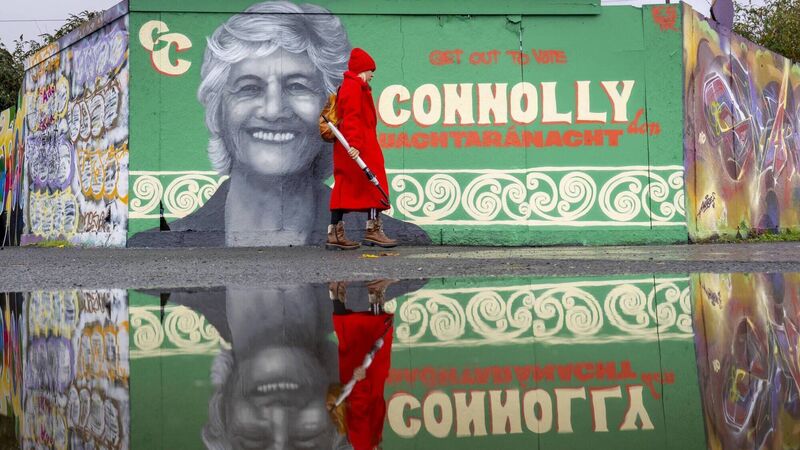Mick Clifford: Connolly bank case row shows how outrage depends on who’s in the firing line

A mural of Independent Presidential Candidate Catherine Connolly by artist Emmalene Blake on South Dock Road, Dublin. Picture: Tom Honan
Is there anything as nauseous as politicians demented with righteous indignation over something they would happily engage in themselves in different circumstances?
Over the last few days, a range of senior politicians has been in danger of self combustion on the matter of plummeting standards in politics.
















